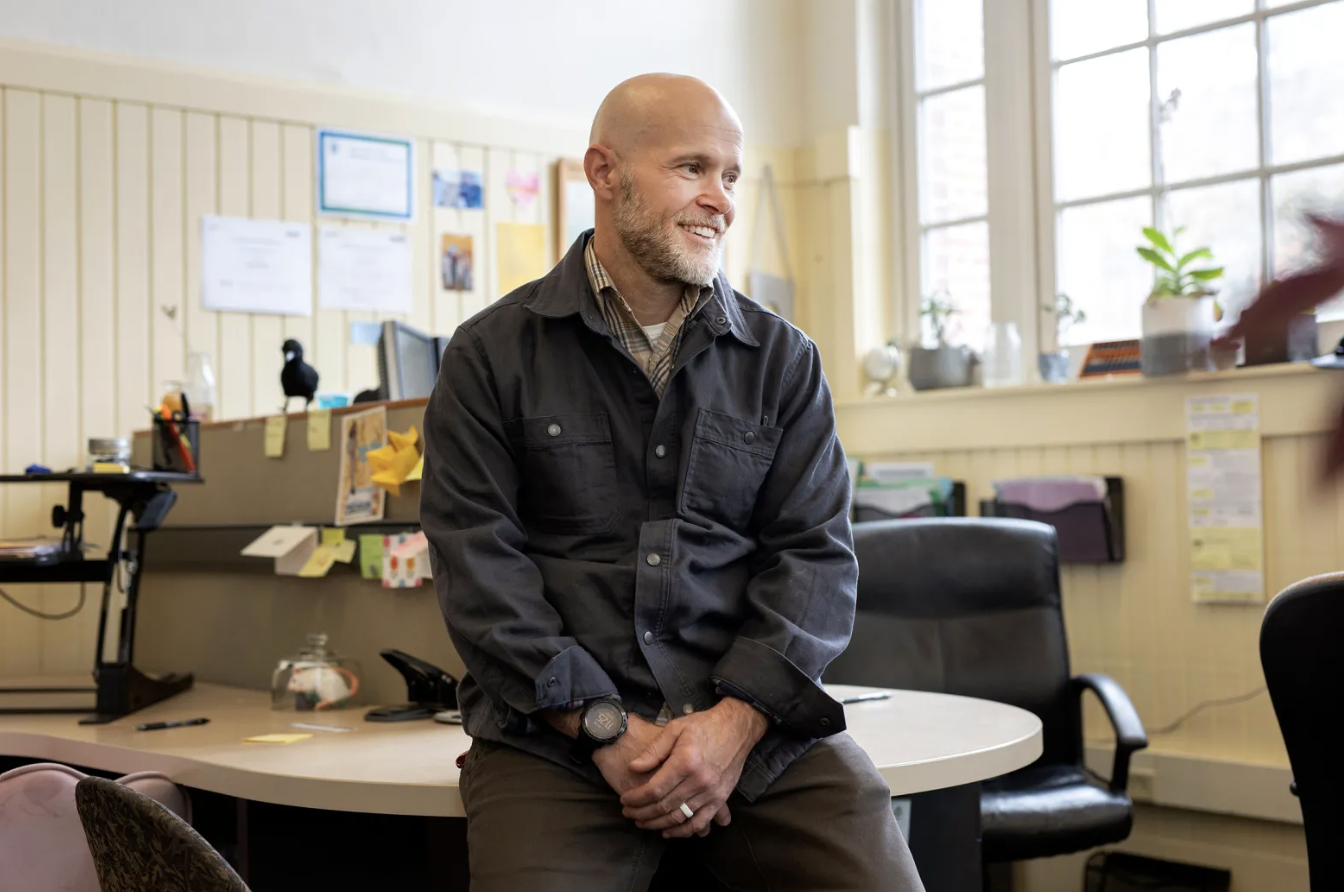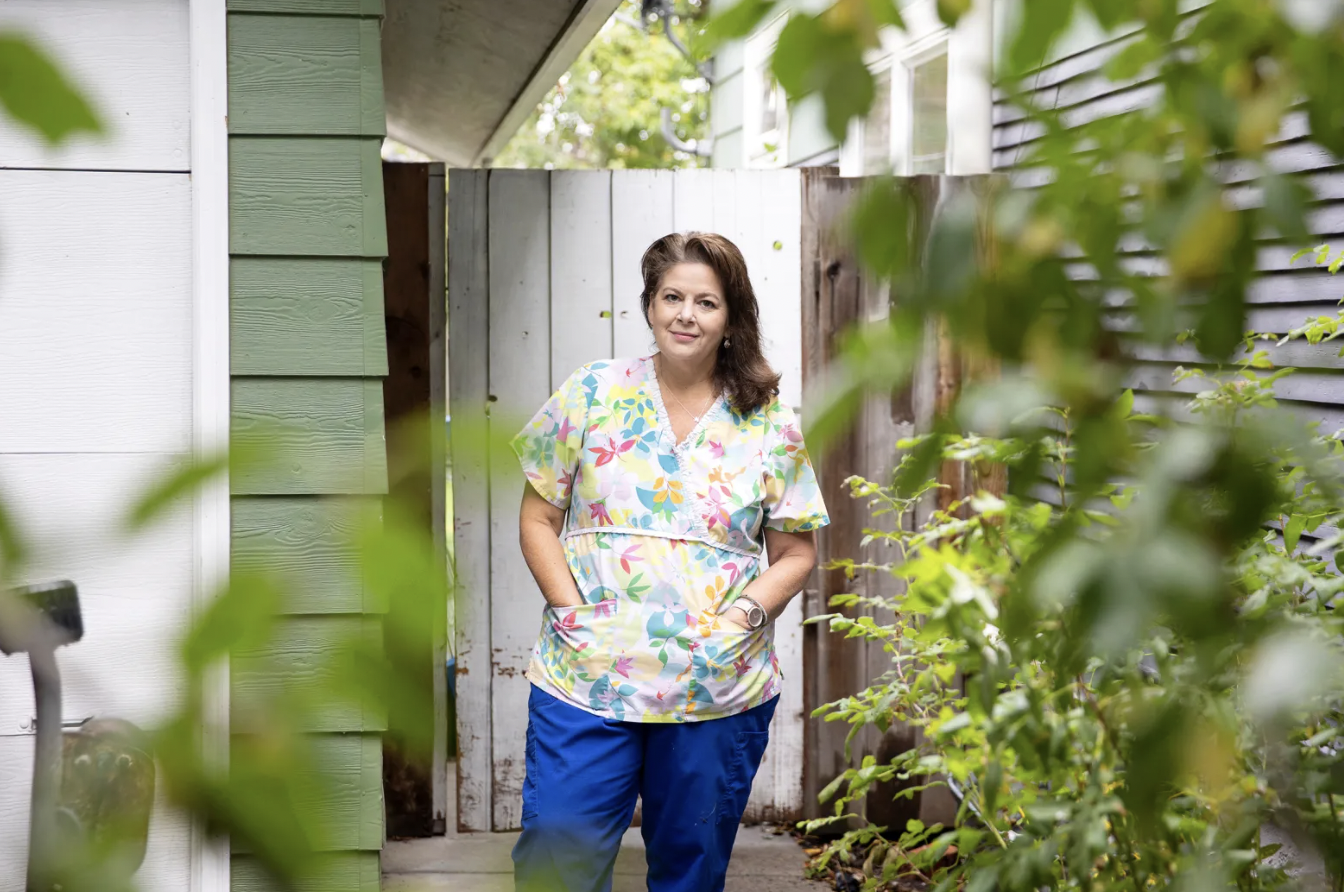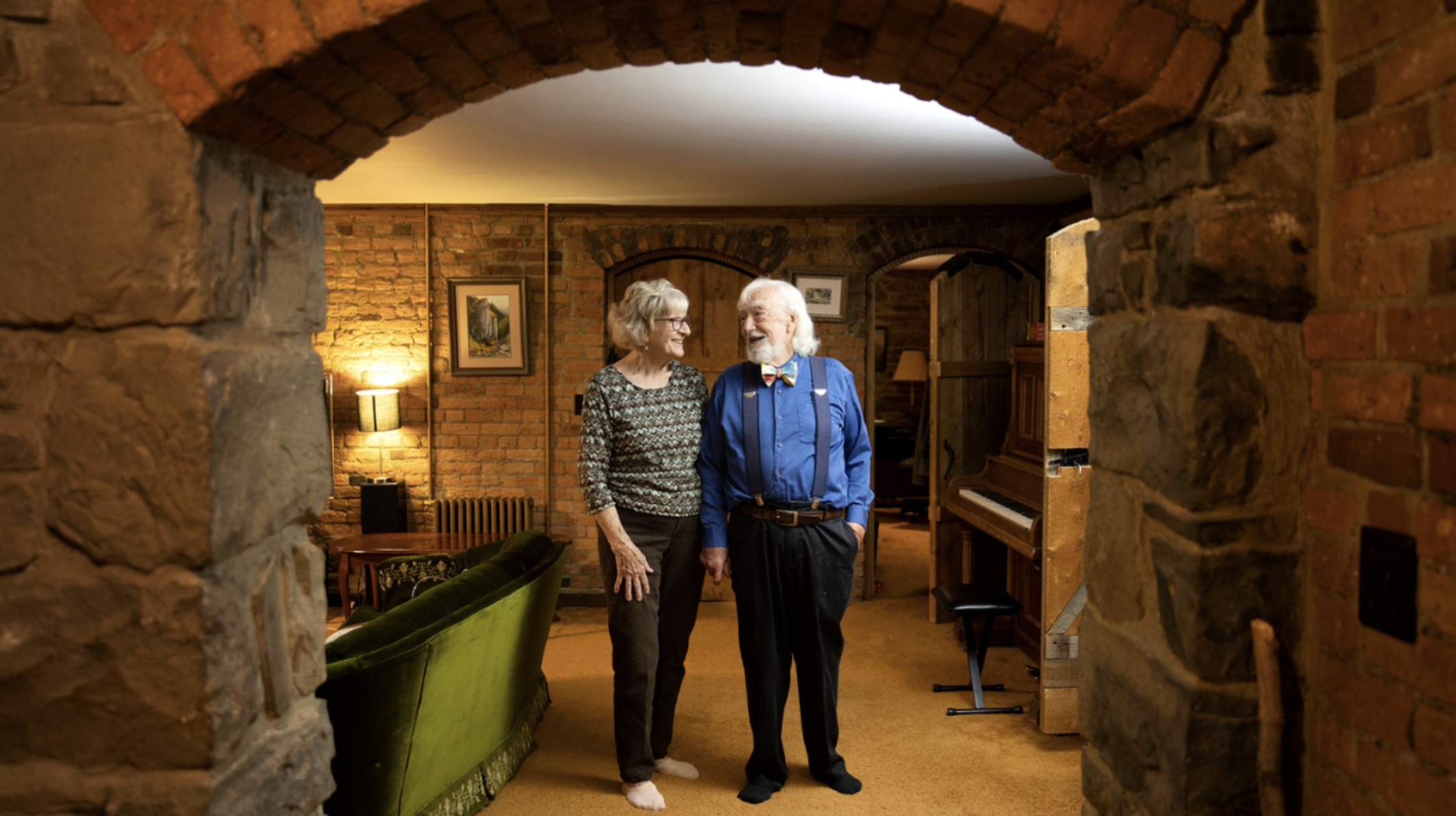With the rental market tightening, a handful of landlords are forgoing higher rents in hopes of preserving small-town culture.
By Janie Osborne MONTANA FREE PRESS
The average cost to rent a one-bedroom apartment in Bozeman is nearing $2,000 a month. Renters report dramatic monthly increases when their leases are up, and the vacancy rate is consistently below 2%. In short, you’re lucky to find a place to live if you want to rent in Bozeman.
Those facts, according to Brian Guyer, housing director at Bozeman’s Human Resource Development Council, have created a “growing separation between the haves and the have-nots.”
While many landlords have capitalized on the high demand for rentals, a handful of property owners have a different perspective. The market would allow them to charge higher, sometimes much higher, monthly rates, but they say they are instead prioritizing preservation of the community and its small-town culture.
Michelle Elder has lived in Bozeman for nearly three decades. Her 700-square-foot rental is above a home that she has owned for 26 years in the recently gentrified north side of Bozeman, not far from the trendy Wild Crumb bakery.

“I got about 60 applications for $1,100 a month rental so it would be pretty easy to get more rent,” she says. “Because I pay all the extras [utilities, trash, sewer and internet], I feel like I could easily get $1,500 to $1,600.”
The recently renovated apartment has a washer and dryer, air conditioning and its own entrance. And though she has raised the rent periodically (15 years ago, it was about $700 a month), she says it has never been unoccupied.
Even so, the last time she advertised the rental online she was harassed.
“It was a huge thread,” she says. “Someone said, ‘lynch the landlord’ because they thought the rent I was asking for was too high.”
“I am a nurse,” Elder says. “I want working people like me in my rental. I want working people to be able to live in this town. It’s a reciprocal relationship. I will take my tenant to the airport. Or my tenant will watch my chickens when I am out of town. I bring food or dessert up to them if I have leftovers.”
Elder says she realizes the current rental market is inflated.
“The way rent is these days, it’s absolutely asinine.” When she raises her rent, she says, it’s simply because property taxes and utilities are going up. “I am not trying to get rich, I just am trying to live in Bozeman.”
Landlord Chris Berman echoes Elder’s assessment.
“No one can afford to live here anymore,” he says. Berman has lived in Bozeman for 22 years and been a landlord for eight. He has two rentals in his home on a quiet street on the north side about three blocks from downtown.
Each of the rentals is about 600 square feet. The rentals are small, Berman says, but they offer “lots of extras like big shade trees, a nice large yard for everyone, shared laundry.”
Berman charges $950 a month for one rental and $1,000 a month for the other, and he covers utilities. One apartment’s rent is more because he charges an additional $50 for a second tenant.
“I want working people like me in my rental. I want working people to be able to live in this town. It’s a reciprocal relationship.”
MICHELLE ELDER
“It’s a killer deal for two people,” he says.
“I know I could charge a lot more, but I don’t,” says Berman, a former manager at Bozeman’s Community Food Co-op who is now attending graduate school for counseling.
“I am content with the rent I pull in. Sure, I would certainly like another $1,000 a month, but I remember what it was like to be a renter in Bozeman. I hope by keeping the rent low it will keep some of the old Bozeman folks — and vibe — around. I want to be fair and kind.”
Like Elder, Berman views his rental home as a community. One of his tenants watches his dog when he is out of town. And one time when one tenant was sick, the other drove her to the emergency room.
“We all do each other favors,” he says.
Perhaps no one in town better understands Bozeman’s rental market than HRDC’s Guyer, himself a former tenant.

At HRDC, Guyer works on local housing complexities every day, but he has also experienced displacement firsthand due to a steep rental increase at his previous Bozeman residence.
“We really wanted to dive in and invest in this community and make it our home,” Guyer says. “But we got a notice from our out-of-state landlord that the rent was being increased $600 a month, and that was it for us. We moved to Livingston. It was a really bitter moment.”
The irony of the circumstance is clear to him.
“I am definitely aware that as the housing director at one of the area’s largest nonprofits — the person mostly responsible for the housing programs that assist low-income residents and the homeless — I am responsible for all these things, but there is no place for me in this community.”
“It is like a game of chicken,” Guyer says, “to see who can set their rent rates the highest. At the end of the day, it’s the tenants who end up paying the costs or being displaced.”
Guyer understands that not everybody has the ability to offer a below-market rental rate, especially if they purchased their investment property in the last few years as the median price of a single-family home in Bozeman approached $900,000. Still, he has a lot of respect for local property owners like Elder and Berman who are choosing to keep rents relatively affordable.
“We all owe a huge debt of gratitude to those who have not been swayed by the greed that can sometimes tempt landlords,” Guyer said.
Zumper, a rental website, currently estimates that the average Bozeman rent is $1,850 for a one bedroom apartment and $2,250 for two bedrooms, amounts that, Guyer says, are unattainable for many.
What below-market landlords are doing, he concludes, is helping preserve the vibrancy of Bozeman and the people who give it character, charm, stories and history.
The story of retired Bozemanites Kay and Ray Campeau speaks to decades of change in Bozeman’s rental market history.
Kay, 84, was born in Bozeman in 1938 when the local hospital was located on Lamme Street. Her husband, Ray, 89, moved to Bozeman in 1951 before joining the Navy.
From 1942 to 1947, Kay and her family lived at 227 South Bozeman, and the rent was $30 for the main floor. The landlords lived in the basement.
Ray and Kay became landlords themselves in 1967 when they purchased their second house, a 6,000-square-foot mansion located near downtown at 419 South Grand St.

The Campeaus lived — and raised their five children — on the house’s two main floors.
At the time, they rented the third floor to college women and the basement to college men. (Once, they say, a tenant from the basement married one of the tenants from the third floor.)
From about 1967 to 1975, one room in the basement had a wooden floor, one had a concrete floor, and the rest was dirt and gravel. The rent was $25 a month per tenant. The Campeaus would usually rent to two or three men at a time in the basement. The women on the third floor paid $35 a month, but they did not have a kitchen and the bathroom was a hike down to the second floor.
Today rent for the 1,500-square-foot basement, remodeled in 1974, is $1,200.
The Campeaus no longer rent the third floor.
For many years, vacancies in the basement rental have been filled through a rotation in which recommendations from outgoing tenants determine the future occupant.
“We don’t want an ad in the paper that says we have a place to rent. … And tenants like finding their own roommate,” Ray says. “Because they all share a kitchen, living room and bathroom.”
“Once we had a tenant [above us] that was a jump-roper,” Ray says.
“And we had a tenant that played a dice game against the wall,” Kay adds.
“That was OK, but it was the jump-roper…” Ray says with a sigh.
The couple now lives in an apartment above the garage, next door to the main house, enabling them to open up the mansion for community events and visiting musicians and actors.
The couple’s approach to the music parlor on the main floor perhaps best represents their attitude toward local rentals and community spirit.
“We have an arrangement with a local musician who has been in Bozeman for approximately 20 years in which she uses the music parlor for private lessons,” Ray says. “We never put any numbers on it — she did. She pays what she feels is fair. She is generous.”
“These are the ways we feel we can contribute to the community that has meant so much,” Kay says.
“We bought the house so reasonably, we feel good about how we share it with the community. It is part of Bozeman’s history,” Ray says.
The couple knows that in the current market, they could rent — or sell — the stately home for a substantial amount of money.
“We could travel for the rest of our lives if we sold and never have to worry,” Kay says, “but we would not be as content as we are now.”
They also understand that some landlords have to charge higher rents because property taxes are expensive.
“You can’t blame people for raising their rents if they can’t pay their taxes,” Kay says.
Ray, a retired art teacher, says something is wrong when “the community can’t afford to keep the people who are hired for very important positions like teaching.”
In the meantime, landlords — and renters — remain in a difficult position.
“How are we going to find that middle ground so we can keep our quality of life, and so an ordinary person can afford to live here?” Kay asks. “Right now it’s spiraling out of control for the ordinary person. I don’t have an answer.”













